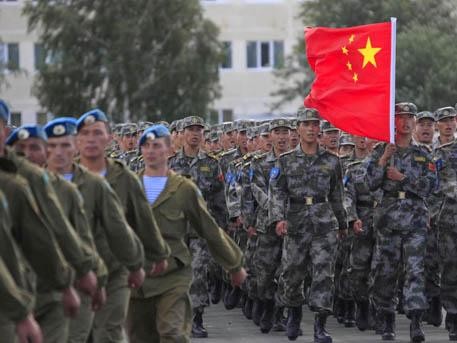China's reliance on supplies and technology from Russia will come to an end in the next 10 years, according to Robert Farley, assistant professor at the Patterson School of Diplomacy and International Commerce at the University of Kentucky, as Washington-based right-wing National Interest magazine reported on July 2.
In his article about the People's Liberation Army, Farley discussed the dramatic change in China's current ground, naval and air forces since the 1990s and noted that the PLA was still using antiquated equipment and concentrating on making money rather than preparing for a conflict. He said that the PLA was also focused more on threats from the north rather than from the east.
Farley said that the PLA is still lagging behind the U.S. military in terms of operational experience, as the U.S. campaigns in Iraq and Afghanistan have made the American military a battle-hardened fighting force but the same cannot be said of the PLA.
Farley said, however, that China is stepping up its efforts to build experience and knowledge by improving the realism of its training drills to raise its operational experience in the next 10 years.
China has also been developing an anti-access/area denial strategy in its military operations, which includes political warfare methods, as well as legal, public opinion and psychological warfare techniques in addition to battlefield combat training.
The article said that Beijing also wants to take away the influence of U.S. forces over its seaside and coastal areas, which would require the PLA to become stronger and more united.
Farley stressed that the country's dependence on Russia for advanced weapons systems and technology will reduce gradually in 10 years, and China will surpass Russia on the technological frontier while its military-industrial complex will eventually emerge from Russia's shadow.
Farley added that China is set to become one of the world's leading arms exporters, as other countries would buy arms from China that would require long-term need for maintenance, training, consulting and upgrade possibilities, from which it can benefit politically as well as economically.



























